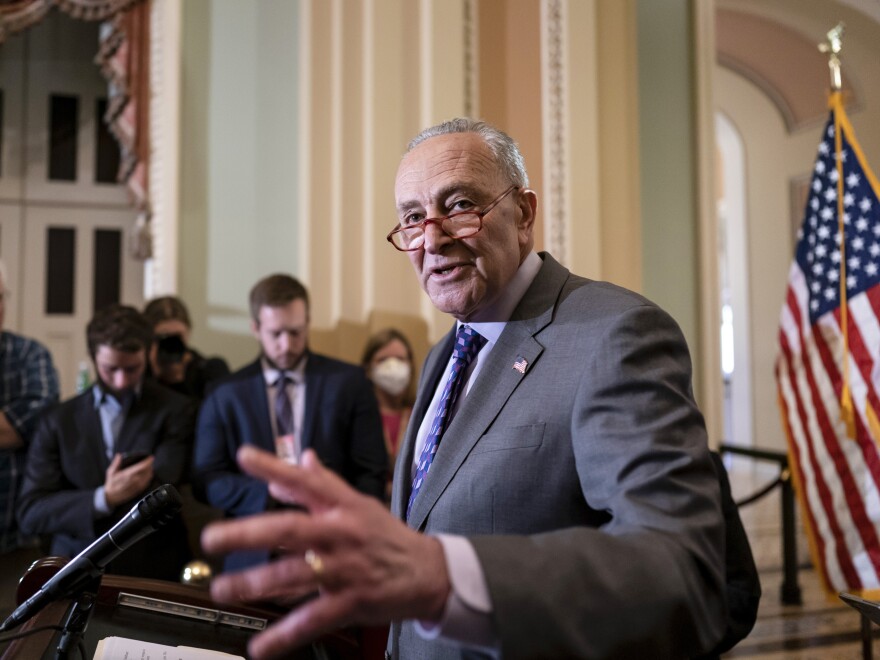Updated May 11, 2022 at 4:54 PM ET
The Women's Health Protection Act, a Democrat-led bill that would effectively codify a right to an abortion, failed to pass, as expected, after it did not reach the Senate's 60-vote threshold. All Democrats voted for the legislation except Sen. Joe Manchin of West Virginia, and all Republicans opposed the bill.
In a rare occurrence, Vice President Kamala Harris presided over the vote, which was 49-51.
Within minutes of the vote, President Joe Biden released a statement that "this failure to act comes at a time when women's constitutional rights are under unprecedented attack – and it runs counter to the will of the majority of American people."
"We will continue to defend women's constitutional rights to make private reproductive choices as recognized in Roe v. Wade nearly half a century ago, and my Administration will continue to explore the measures and tools at our disposal to do just that," Biden said, without providing details.
Majority Leader Chuck Schumer said last week the Senate would be a vote on the bill after a leaked draft opinion from Supreme Court Justice Samuel Alito revealed that the court is likely to overturn the 50-year-old protections of abortion rights granted under the 1973 Roe v. Wade case.
Because it was never likely to pass, the vote was effectively symbolic. "I think it's really important to have this vote to show where everyone stands," Democratic Sen. Amy Klobuchar of Minnesota told NPR on Tuesday.
But Senate Minority Leader Mitch McConnell's comments over the weekend that Republicans might try to move legislatively on a nationwide abortion ban also upped the stakes for Democrats.
The draft opinion from the court would not issue a national ban, but it would allow states to do so.
Focus could now turn to efforts from more moderate Republican Senators Susan Collins of Maine and Lisa Murkowski of Alaska who are drafting a narrower approach to the WHPA legislation. That bill would also aim to codify Roe in some form, but it has restrictions that many Democrats do not support.
Democratic Senator Tim Kaine of Virginia said he's having "productive discussions" with Collins about that legislation but he acknowledged that even that bill, should it come together, would not immediately have enough support to pass.
"I've worked on things with Lisa and Susan before and negotiated and often find an answer that we can live with," Kaine said. "So I'm in that spirit. That's the spirit of the discussions."
And while the WHPA failed to pass Wednesday, Democrats did manage to get support from Pennsylvania Sen. Bob Casey, who said on Tuesday he would vote in favor of the legislation.
Casey is one of the few anti-abortion Democrats in office. His father, Bob Casey Sr., was Pennsylvania governor during the 1992 Supreme Court case Planned Parenthood of Southeastern Pennsylvania v. Casey, which upheld Roe but paved the way for abortion restrictions.
In a statement, the younger Casey said the circumstances around abortion rights in the country have changed over the last few months. He cited the leaked draft opinion from the Supreme Court and the possibility that Republicans might try to codify a national ban on abortions.
"During my time in public office, I have never voted for — nor do I support — such a ban," Casey said.
Copyright 2022 NPR. To see more, visit https://www.npr.org.





